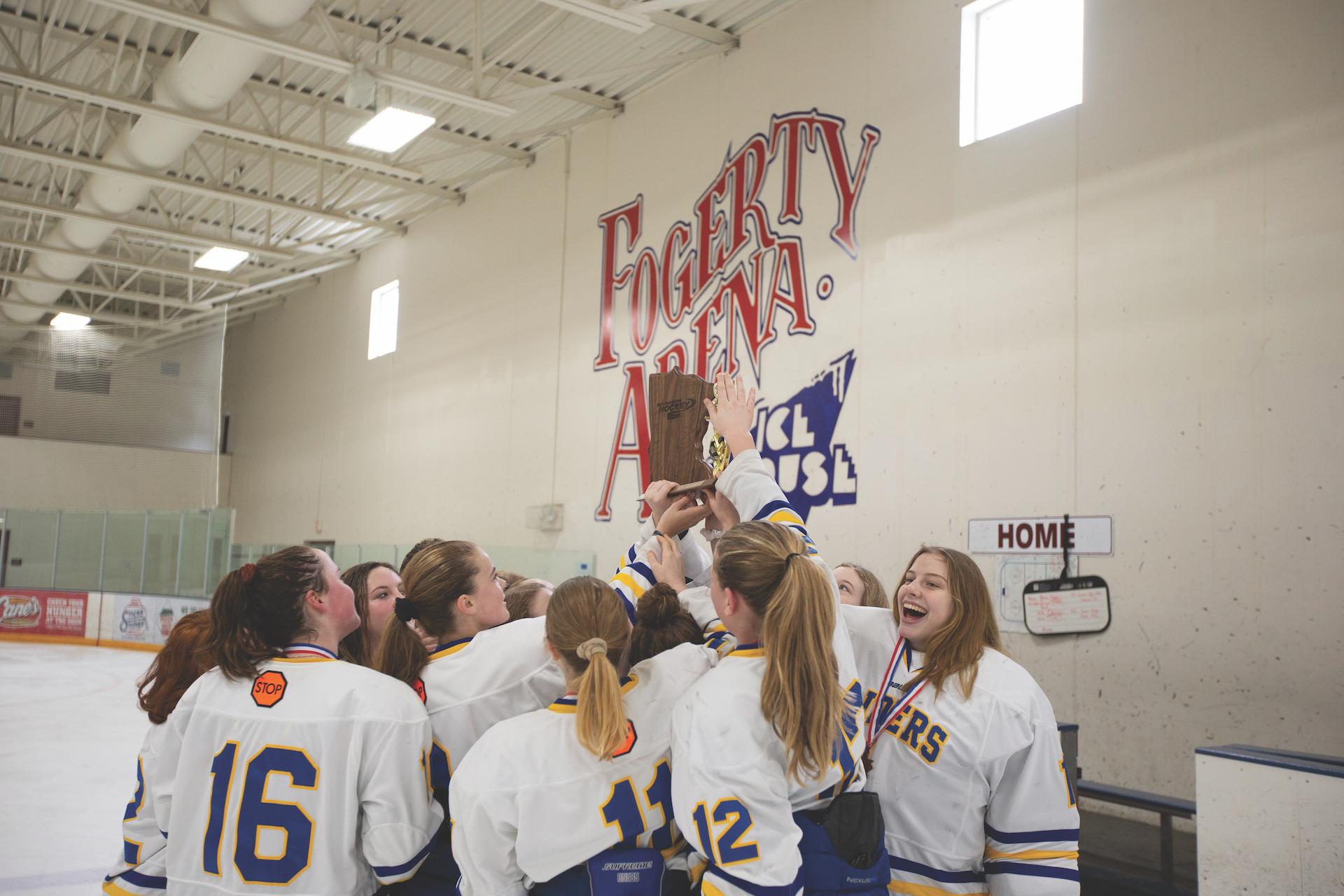
In recent years, “culture” has become a buzzword across the business and sports landscape, as CEOs and coaches look for ways to improve both their teams’ experience and performance.
Detroit Lakes native Garrett Raboin, the first-year head coach of the brand-new NCAA Division I hockey program at Augustana University in Sioux Falls, S.D., has inherited the added challenge of building a culture from scratch.
Having a strong team culture is important to ensure players come together and do things the right way. In any successful program, players must embrace the ideas of accountability, support for one another and respect for the game, the officials, their teammates, coaches, fans and opponents.
“Winning is a byproduct of a good culture,” said Raboin, who was a captain at St. Cloud State before playing professionally in Europe. “It’s about how people handle their business. From off the ice to on the ice and in the classroom, it’s all connected. And it ultimately becomes who you are and how you approach each day.”
Creating a Culture Framework
According to Raboin, who has seen firsthand as a coach at Minnesota and St. Cloud State what it takes to develop a winning program, a team’s culture is often defined before the players walk through the door. He believes it’s incredibly important to first have a staff that’s aligned with the vision for the program and embodies the same traits they’re looking for in their players.
“A lot of what goes into creating a culture happens organically, but you do have to be thoughtful about it and define what your team is going to be about,” said Raboin. “A lot of it goes back to simply doing the right thing. I also think creating lines of communication is a huge part of it. I don’t give my guys a big booklet or guidelines about how to be. But it’s important to have opportunities for players to talk about things, whether about hockey or outside of hockey. If players aren’t communicating with one another, issues can compound, and then it becomes harmful to your group.”
“At the college level, we hit the recruiting trail looking for the right kind of kid,” he says. “You want players with leadership traits and character. They value academics, and they’ve shown resiliency by overcoming adversity. We’re starting a program from scratch, and we know there will be ups and downs. So, we’re looking for people that are explorers in a sense. They’re walking into the unknown, so it’s important that we do it together.”
Sustaining Culture Throughout the Season
To drive home the key elements of team culture and sustain it for the long term, some coaches put motivational phrases in writing on the locker room or weight room walls. Others make it a point to address the topic of culture during practices over the course of the season and/or add team-building events to the schedule.
For Raboin, clear and consistent communication is incredibly important. And he believes players, especially as they get older, “need to own it.”
“To sustain positive culture throughout a season, a lot of it is in the people,” said Raboin. “It has to be modeled by the adults, and as time goes on, players will slowly start to grab hold. You hope there will be a day when older players will teach the younger players what the culture is all about and how important it is to the team.”
Advice for Coaches and Parents
While players certainly play a big part in ensuring team culture stays positive and supportive, the adults around these young athletes must model behavior and guide kids to help correct unhealthy habits.
“The biggest thing coaches can do is be involved and make sure they have their fingers on the pulse of the team,” Raboin said. “They need to be cognizant of how players are connecting with one another, how they’re treating one another on the bus, in the locker room or at the hotel. Players at the youth levels are constantly on their iPads or their phones, so they don’t communicate with each other as they did in the past. So, I think coaches need to find creative ways to promote communication within the team, on and off the ice, and make sure players are verbalizing how they feel in a healthy manner.”
Raboin says parents also play a critical role.
“I have three kids of my own in hockey, and a lot of times the conversation in the car to and from games and practices shapes the way the kids communicate and view teammates and coaches,” he said. “It’s important that parents stay positive and encouraging. And not only about their son or daughter, but about teammates as well. They need to continue to push a positive message.”
